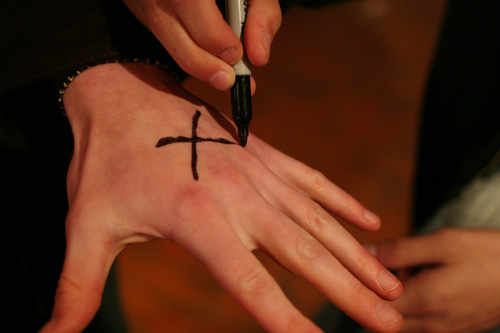Champaign to vote on liquor laws

The Champaign City Council will vote Tuesday on whether or not to give the Liquor Commissioner more power in issuing emergency orders. If the ordinance passes, he would have the power to restrict bars to 21 and older. Erica Magda
Apr 15, 2008
Last updated on May 13, 2016 at 09:49 a.m.
The city of Champaign is attempting to take more steps to hamper Unofficial St. Patrick’s Day celebrations from happening in the coming years.
On Tuesday night, the Champaign City Council will be voting on an ordinance that if passed, would give the liquor commissioner more “emergency powers.”
Among the new powers would be the ability to declare the entry age into bars 21 and over.
“This is more of a hammer for Unofficial St. Patrick’s Day,” said Gerald Schweighart, mayor and liquor commissioner. “This is so people know ahead of time I will be enforcing the rule.”
Get The Daily Illini in your inbox!
According to the city’s current municipal code, an emergency order can be made “when the Commissioner has a reasonable belief that there may be a threat to the public health, safety and welfare from celebratory activities by members of the public in response to the University of Illinois’ participation in a noteworthy athletic event, or from some other form of anticipated public assembly or civil unrest.”
Schweighart said he aims to make Unofficial less of a binge drinking celebration, and also to stop visitors from coming solely for the event.
“One bar owner said by making the (bar entry) age 21, we would be cutting out 500 customers,” he said. “At $10 a head for cover charge, we would be taking the profit out of it.”
Justin Randall, former student body president and member of the city’s Liquor Advisory Commission, said the ordinance is concurrent with some of the things local bar owners already said they would do, including raising the age to 21 during Unofficial.
Schweighart said in the past few years, aside from Unofficial, he has only issued an emergency order for celebrations when the University made it to the Final Four in the NCAA basketball tournament.
There is a concern that if passed, the age restrictions will lead to more private parties. Schweighart said the city and police will be taking a more active role with this issue year-round and not just during Unofficial.
“There will be more patrols and more observing, stopping the parties before they get out of hand,” Schweighart said. “We also may be increasing the amount of fines to those who host parties.”
The mayor said this could be done by undercover police officers, who can enter private parties.
The city’s aim is to curtail any profit made through apartment residents charging party-goers for alcohol by assessing fines based on what the undercover officer finds.
The city’s Liquor Advisory Commission held a discussion on the ordinance on March 20 while the University was on spring break. The item, which was presented to the Unofficial St. Patrick’s Day Task Force on March 14, was advertised under normal circumstances via the regularly published agenda. There was no public hearing or study session held for the ordinance.
Randall said he was not at the meeting March 20, and had not received the information about the meeting until spring break had already started.
Secretaries in the University’s Office of the Chancellor have said they have not received any information regarding Tuesday’s ordinance.
Not everybody on the City Council is in favor of this new ordinance though.
“I think he is adequately supplied with emergency powers right now and he has used them to shut down bars,” said District 2 Council Member Michael La Due. “I don’t think it is necessary to add them at this point.”
La Due said he thinks the ordinance was created specifically for the University.
The ordinance was originally scheduled to be voted on April 1 but was deferred because of the absence of the mayor at the meeting.





